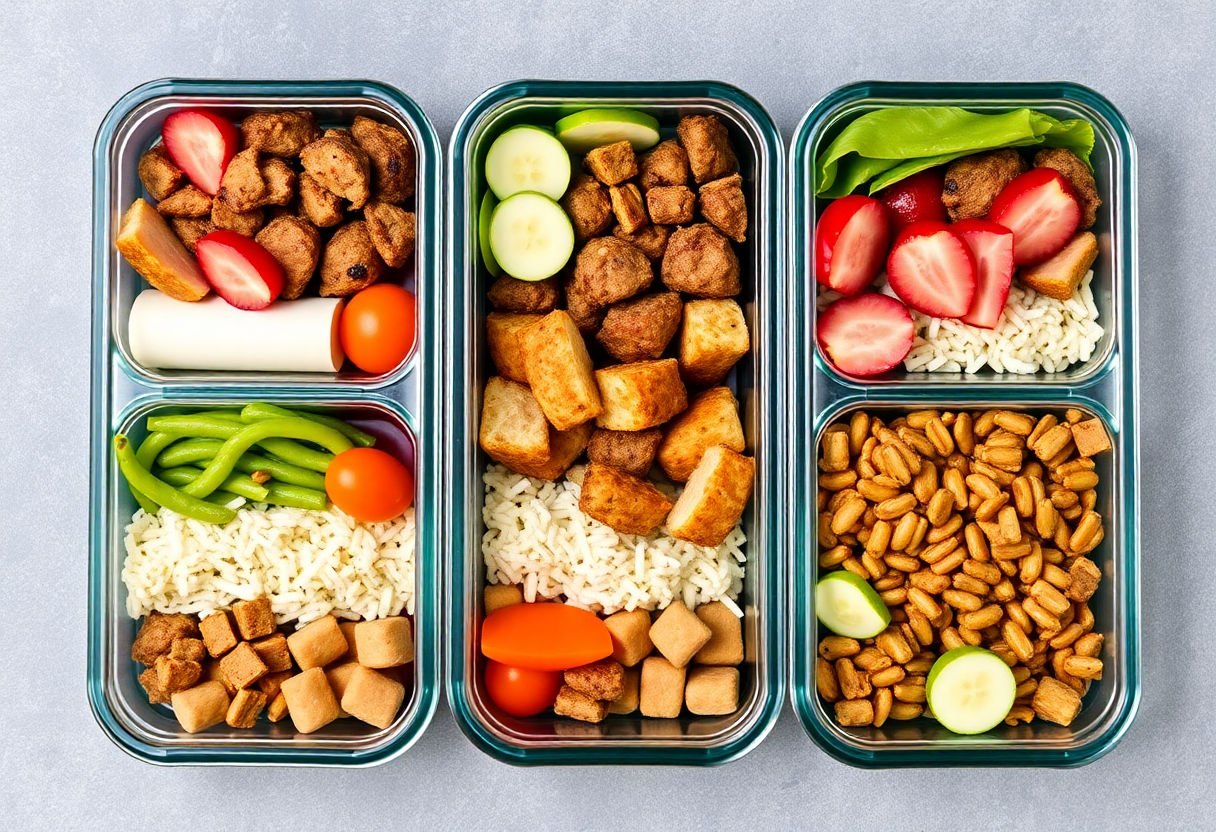Strategic meal prepping offers potentially profound benefits for those seeking relief from psoriasis. By understanding the vital connection between diet, lifestyle, and skin health, individuals can manage this chronic condition more effectively. This comprehensive guide explores how mindful dietary choices, when meticulously planned, can influence psoriasis symptoms positively. From identifying anti-inflammatory foods to avoid common dietary triggers, this article delves into practical solutions for integrating nutritious meal prep into daily routines. Discover how these efforts can not only reduce stress and save time but also contribute to improved skin health and overall well-being.
Key Takeaways
- Meal prepping can help manage psoriasis by promoting consistent, healthy eating habits that potentially alleviate symptoms.
- Understanding the connection between diet and skin health is crucial, as certain foods can either relieve or exacerbate psoriasis symptoms.
- A balanced diet rich in anti-inflammatory foods can play a significant role in reducing psoriasis flare-ups.
- Meal prep not only saves time and reduces stress but also ensures that nutritious meals tailored to individual dietary needs are readily available.
- Incorporating meal prep into your routine involves strategic planning but can lead to significant improvements in psoriasis management.
Understanding Psoriasis
Psoriasis is a chronic autoimmune condition that affects the skin, leading to red, scaly patches that can be itchy and sometimes painful. Understanding psoriasis involves recognizing that it is not merely a superficial skin issue but a reflection of deeper immune system irregularities. The condition is characterized by the rapid overproduction of skin cells, a process driven by faulty immune signals.
Several factors can trigger or exacerbate psoriasis symptoms, including stress, infections, certain medications, and weather conditions. Among these, lifestyle factors, particularly diet, play a crucial role in managing the disease’s severity and frequency of flare-ups. While psoriasis cannot be cured, it is possible to manage its symptoms effectively by adopting healthier living habits.
In terms of lifestyle, maintaining a balanced diet rich in anti-inflammatory foods may offer relief. It’s important to avoid common dietary triggers like excessive alcohol, sugar, and red meat, which may provoke inflammatory responses in the body. Regular physical activity, stress management techniques, and adequate sleep also contribute significantly to alleviating psoriasis symptoms.
Understanding these elements is vital for anyone seeking to use nutrition and lifestyle as part of their psoriasis management strategy. By taking a closer look at what psoriasis is and how it interacts with various lifestyle factors, individuals can better equip themselves with the necessary tools to manage this condition effectively, and meal preparation is one such tool that can make a noteworthy impact.
The Role of Diet in Psoriasis Management
Diet plays a pivotal role in the management of psoriasis, a chronic inflammatory skin condition. While no specific regime can cure psoriasis, a balanced diet can potentially influence the severity and frequency of flares. Certain foods are known for their anti-inflammatory properties, which may alleviate symptoms. For instance, incorporating fatty fish like salmon and mackerel, rich in omega-3 fatty acids, can help reduce inflammation. Similarly, fruits and vegetables such as berries, spinach, and kale are packed with antioxidants and phytochemicals that support skin health.
Conversely, some foods are notorious for exacerbating psoriasis. Processed foods, red meat, and dairy products can be potential triggers, as they are often high in saturated fats and sugars that may contribute to inflammation. Moreover, alcohol consumption is linked to increased risk and severity of psoriasis flares due to its inflammatory effects.
Emphasizing the inclusion of whole grains, lean proteins, and healthy fats like those found in olive oil can make a considerable difference. Additionally, staying hydrated and maintaining a healthy weight are essential aspects of dietary management in psoriasis. Developing a meal plan that provides a varied, nutrient-rich diet can improve overall wellness and may offer relief from psoriasis symptoms.
Meal prepping can be an effective strategy to adhere to a psoriasis-friendly diet. By planning and preparing meals in advance, individuals can avoid unhealthy eating habits and ensure an optimal nutritional intake, reducing the stress of daily food choices and allowing for a more consistent approach to managing psoriasis.
Benefits of Meal Prep

Meal prepping offers a multitude of benefits, particularly for individuals seeking relief from psoriasis through dietary means. Time-saving is one of the most significant advantages, as it allows individuals to prepare their meals in advance, reducing the daily burden of meal preparation. By investing a few hours weekly, one can efficiently organize meals for several days, freeing up time for other health-promoting activities.
Another key benefit is the reduction of stress, which is crucial for those managing psoriasis. Having meals ready-to-eat minimizes decision fatigue and prevents last-minute, less healthy food choices. This organized approach not only alleviates pressure but also contributes to a more relaxed lifestyle, positively impacting psoriasis symptoms.
Meal prepping also promotes healthy eating habits. By planning and preparing meals ahead, individuals can ensure their dietary choices include foods beneficial for psoriasis. This includes incorporating anti-inflammatory foods like fatty fish, leafy greens, and colorful fruits, while avoiding potential triggers such as processed foods, dairy, and refined sugars. The controlled environment of meal prep helps maintain a consistent intake of necessary nutrients conducive to managing psoriasis.
In addition, meal prepping can be economically advantageous. By purchasing ingredients in bulk and using them effectively, one can reduce overall food waste and costs. This approach allows individuals to allocate funds wisely towards high-quality ingredients with proven benefits for psoriasis relief. Ultimately, the structured nature of meal prepping supports not only nutritional goals but also contributes to a holistic approach towards managing psoriasis.
Planning Your Meals

Embarking on a meal planning journey for psoriasis management requires attention to detail and an understanding of nutritional needs. When planning meals, focus on incorporating anti-inflammatory foods, such as fruits, vegetables, whole grains, and lean proteins. These foods are essential as they can potentially reduce inflammation and alleviate symptoms.
Begin by mapping out your meals for the week. This process ensures you have a balanced diet, supporting your dietary goals for psoriasis relief. Utilizing a weekly meal planner can assist in keeping track of what you intend to prepare and consume. Start with main meals and include snacks that are beneficial for maintaining energy and managing symptoms.
When selecting ingredients, consider their potential effect on inflammation. For instance, including omega-3 fatty acids from sources like salmon, walnuts, and flaxseeds can be advantageous. These foods are renowned for their ability to combat inflammation. Likewise, turmeric and ginger are spices that can be added to dishes for additional anti-inflammatory benefits.
Creating a shopping list based on your meal plan is a strategic way to ensure you have all necessary ingredients on hand, minimizing the temptation to select foods that might exacerbate symptoms. Look for seasonal produce, which tends to be fresher and more nutrient-dense.
Remember to allocate time for meal prep. Dedicate a block of time each week to pre-cut vegetables, cook proteins, and portion meals. This organized approach not only saves time but also encourages sticking to your health goals. Embrace diversity in your meals to prevent monotony, ensuring a sustainable and enjoyable meal prep experience.
Implementing Meal Prep in Your Routine

To successfully implement meal prep into your daily routine for managing psoriasis, start by adopting a strategic approach. Here are practical steps to help you integrate this beneficial habit into your lifestyle:
-
Set Clear Goals: Determine what you aim to achieve with meal prep, such as reducing inflammation or maintaining a balanced diet. Clear objectives guide your planning and food choices.
-
Schedule Time for Planning: Allocate a specific day for planning and preparing meals. Consistency is key. Whether it’s weekly or bi-weekly, having a dedicated time helps build a routine and minimizes decision fatigue.
-
Begin with Simple Recipes: Start with easy-to-make dishes that require minimal preparation time. As you become more comfortable, gradually introduce more complex meals. This approach prevents overwhelming yourself with too much at once.
-
Invest in Quality Containers: Using high-quality, reusable containers ensures that meals stay fresh longer and makes it easier to transport them, whether to work or on the go.
-
Batch Cooking: Cook large quantities of certain foods that are in line with psoriasis-friendly diets, such as lean proteins and roasted vegetables. This not only saves time but also ensures you have ready-to-eat meals throughout the week.
-
Variety and Balance: Ensure a mix of different foods to keep meals interesting and nutritionally balanced. Incorporate anti-inflammatory foods like leafy greens, nuts, and fish.
-
Evaluate and Adjust: Regularly assess how meal prep is impacting your psoriasis management. Adjust recipes and ingredients based on what works best for your unique body and symptoms.
By following these steps, meal prep becomes an effective tool in your routine, contributing to both psoriasis relief and a healthier lifestyle overall.
Sample Meal Prep Ideas

When approaching meal prep for psoriasis relief, focusing on anti-inflammatory ingredients is crucial. Here are a few ideas that not only cater to skin health but also ensure a diverse and satisfying meal plan.
Breakfast Options:
- Overnight Oats: Combine rolled oats with almond milk and chia seeds. Top with anti-inflammatory fruits like blueberries and a sprinkle of flaxseeds.
- Smoothie Packs: Prepare freezer bags with spinach, banana, and berries. Blend in the morning with almond milk and a teaspoon of turmeric for an anti-inflammatory boost.
Lunch Ideas:
- Quinoa and Kale Salad: Pre-cook a batch of quinoa and mix with chopped kale, cherry tomatoes, and a tahini-lemon dressing. Add grilled chicken or chickpeas for protein.
- Lentil Soup: Pre-make a hearty lentil soup with carrots, celery, and spices like cumin and turmeric. Store in individual containers for easy reheating.
Dinner Meals:
- Baked Salmon with Sweet Potatoes: Season salmon with herbs and bake alongside sweet potato wedges. Pair with steamed broccoli or Brussels sprouts.
- Vegetable Stir-Fry: Sauté a variety of vegetables like bell peppers, snap peas, and mushrooms. Serve over brown rice or whole-grain noodles, seasoned with ginger and low-sodium soy sauce.
Snack Suggestions:
- Hummus and Veggie Sticks: Prepare carrot, cucumber, and bell pepper sticks with individual containers of homemade hummus.
- Nuts and Berries: Mix almonds or walnuts with berries for a quick anti-inflammatory snack.
These meal ideas are designed to be both nourishing and convenient, allowing individuals to focus on their wellness goals without spending excessive time in the kitchen.
Conclusion
Incorporating meal prep into your routine offers a strategic advantage in managing psoriasis symptoms through consistent and balanced dietary habits. By understanding the impact of certain foods and avoiding known triggers, individuals can potentially lessen flare-ups and enjoy improved skin health. As you explore meal prepping, embrace this opportunity to foster a healthier lifestyle that supports long-term well-being. With dedication to thoughtful food choices and preparation, you can unlock significant benefits and make a meaningful difference in your psoriasis management journey.
Frequently Asked Questions
How can meal prep benefit someone with psoriasis?
Meal prep can aid individuals with psoriasis by helping them maintain a consistent and balanced diet, which is fundamental in managing symptoms. By preparing meals in advance, individuals can ensure they incorporate anti-inflammatory foods while avoiding trigger foods.
What are the best foods to include in a meal prep plan for psoriasis relief?
Incorporating foods rich in omega-3 fatty acids, such as salmon and flaxseeds, as well as fruits and vegetables high in antioxidants, can be beneficial. These foods have been shown to help reduce inflammation in the body, potentially alleviating psoriasis symptoms.
Are there specific foods that should be avoided when meal prepping for psoriasis?
Yes, it’s advisable to avoid foods known to exacerbate psoriasis symptoms, such as processed foods, red meat, and dairy products. These foods can increase inflammation and may lead to flare-ups.
How often should meal prep be done for optimal psoriasis management?
Engaging in meal prep once a week can be effective, allowing individuals to plan and prepare a week’s worth of meals that support their dietary needs. This routine can help maintain dietary consistency, which is beneficial for managing psoriasis.
Can meal prep replace medication for managing psoriasis?
Meal prep should not be considered a replacement for prescribed medication or treatments. Instead, it acts as a complementary strategy to help manage symptoms through a healthier diet. Always consult healthcare professionals regarding any changes in treatment plans.


